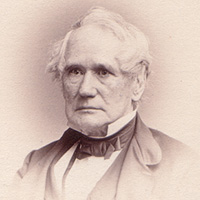A Quote by Adam Smith
The value of any commodity, therefore, to the person who possesses it, and who means not to use or consume it himself, but to exchange it for other commodities, is equal to the quantity of labour which it enables him to purchase or command. Labour, therefore, is the real measure of the exchangeable value of all commodities. The real price of everything, what everything really costs to the man who wants to acquire it, is the toil and trouble of acquiring it.
Related Quotes
I have endeavoured to show that the ability to pay taxes depends, not on the gross money value of the mass of commodities, nor on the net money value of the revenue of capitalists and landlords, but on the money value of each man's revenue compared to the money value of the commodities which he usually consumes.
If the land was divided among all the inhabitants of a country, so that each of them possessed precisely the quantity necessary for his support, and nothing more; it is evident that all of them being equal, no one would work for another. Neither would any of them possess wherewith to pay another for his labour, for each person having only such a quantity of land as was necessary to produce a subsistence, would consume all he should gather, and would not have any thing to give in exchange for the labour of others.
Money is different from all other commodities: other things being equal, more shoes, or more discoveries of oil or copper benefit society, since they help alleviate natural scarcity. But once a commodity is established as a money on the market, no more money at all is needed. Since the only use of money is for exchange and reckoning, more dollars or pounds or marks in circulation cannot confer a social benefit: they will simply dilute the exchange value of every existing dollar or pound or mark.


























